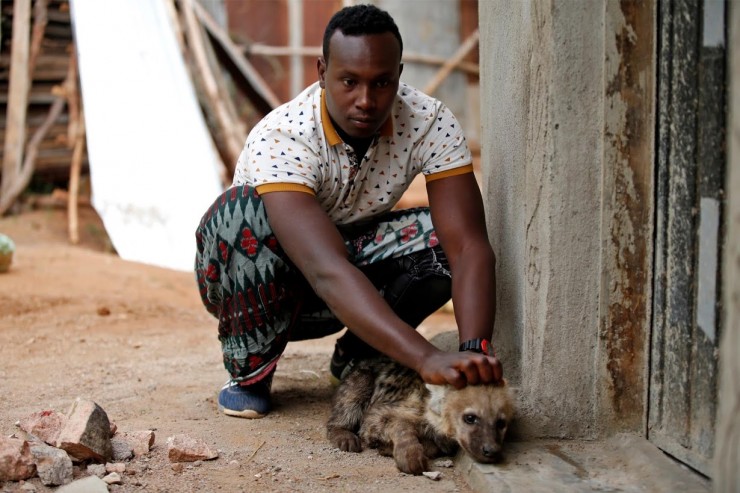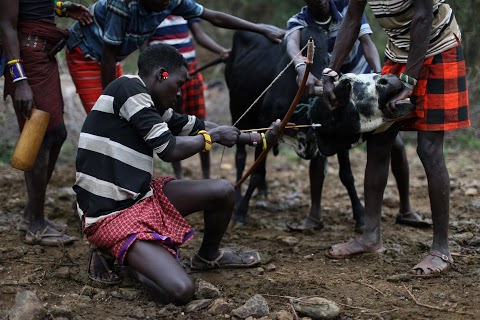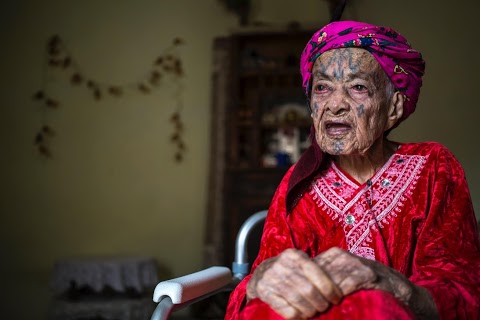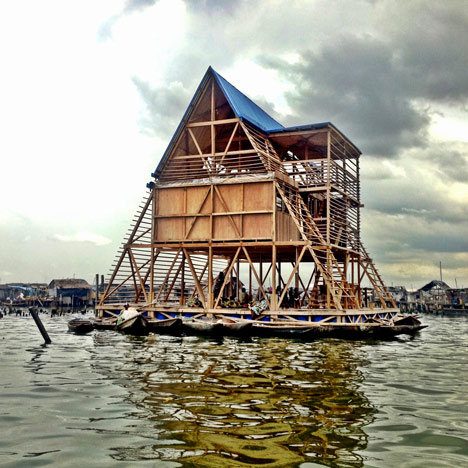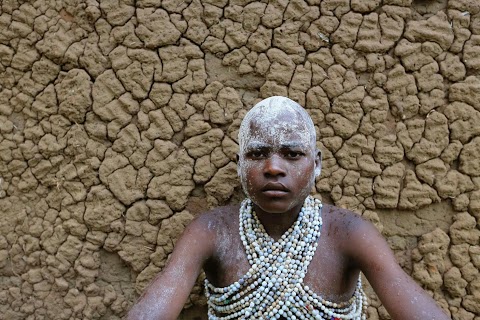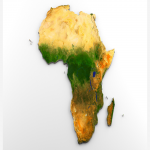Hyenas roam the streets of the ancient walled city of Harar in eastern Ethiopia every night, seeking scraps of meat to drag to the nearby caves.But residents are not afraid. A family chosen by the town to feed the animals is not daunted by the task despite the dangers that are associated with coming into close quarters with such wild animals.
Abbas Yusuf, known as Hyena Man, learnt to feed the hyenas from his father, Yusuf Mume Salleh, who fed them for 45 years before passing the job to his son 13 years ago.
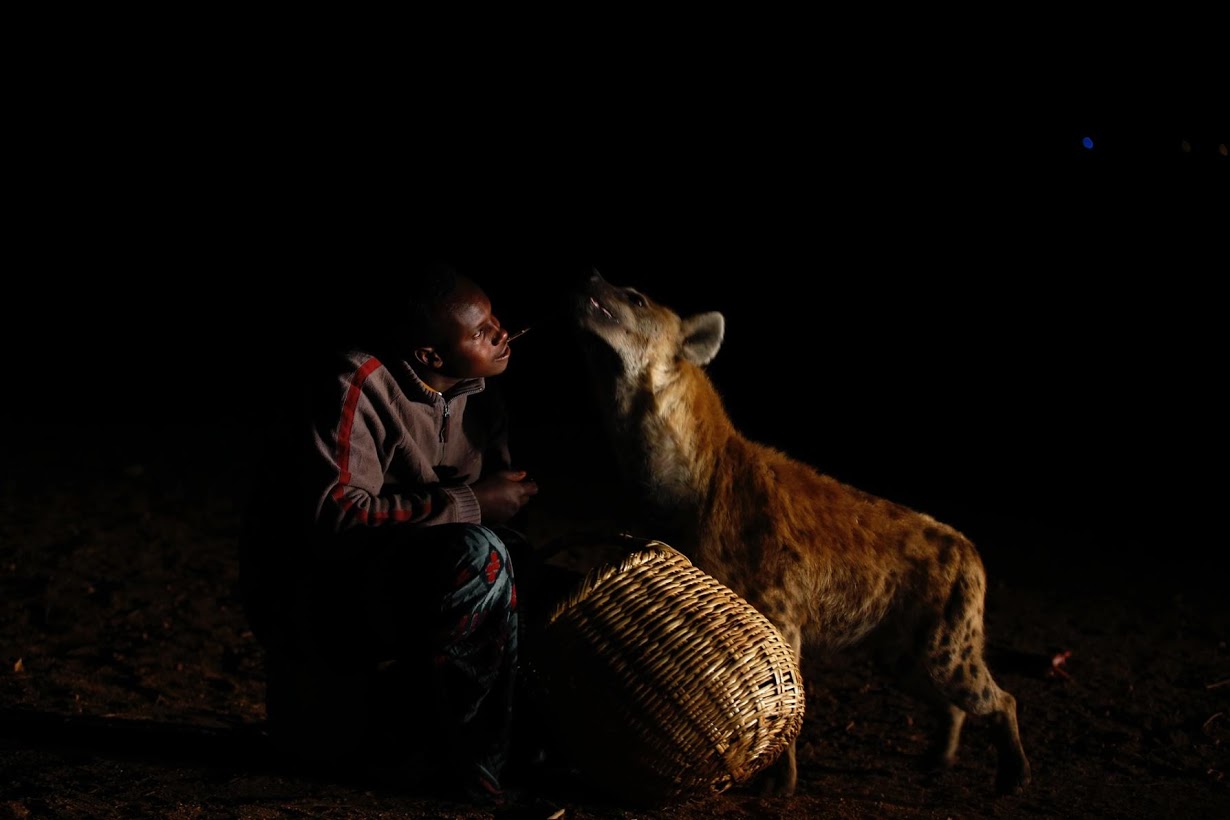
Abbas has given the hyenas names according to their behaviour and appearance. Among them are "Dabbassoo" or "Hairy", "Tuqan Dilii" or "Lazy", and "Qallaa", meaning "skinny".
To encourage visitors to trust the hyenas, Abbas feeds them directly from his mouth.
The hyenas live in caves outside the city and roam the rubbish dumps, also outside the walls. Some hyenas give birth in the ditches in the middle of the city.
According to Anisa Mohammed, a 32-year old bread vendor, the hyenas are a gift of nature to clean up the city we mess during the day time. Without them the city will be much dirtier.
Harar, with a population of 240,000 people, started to expand out of its original wall after 1882 and is now surrounded by modern buildings.
It has been a centre of Islamic culture since it was founded in the 7th century. In the 16th century Emir Nur Ibn Mujahid built a four-metre-high protective wall around the city, pierced by five gates.
Every year since the 16th century, to mark the birth of Prophet Mohammed, the city's residents offer the hyenas porridge mixed with butter and goat meat on the "Hakim Mountain", outside the city, believed to be a holy site because the ancient Muslim leaders of the city are buried there.
If the hyenas refuse the sacrifice, people believe the country will have bad luck.
